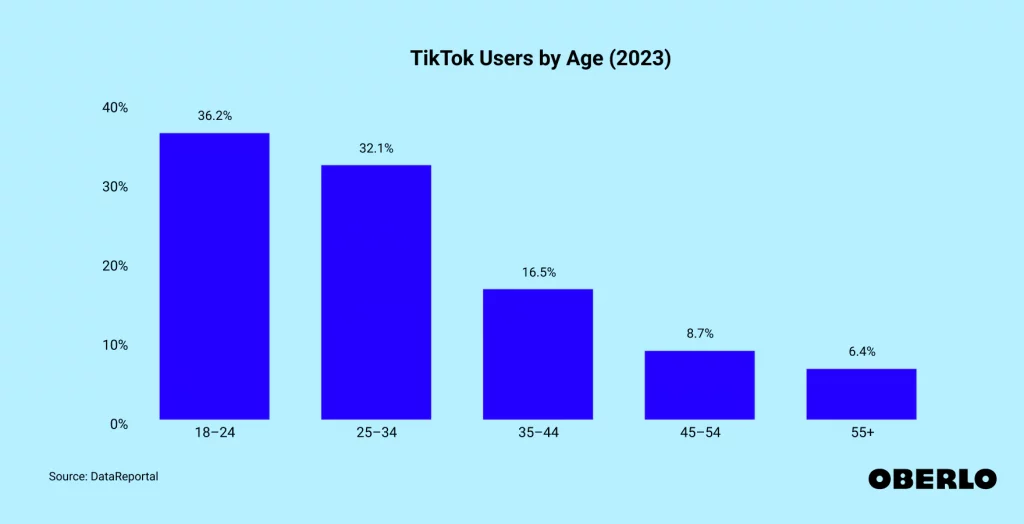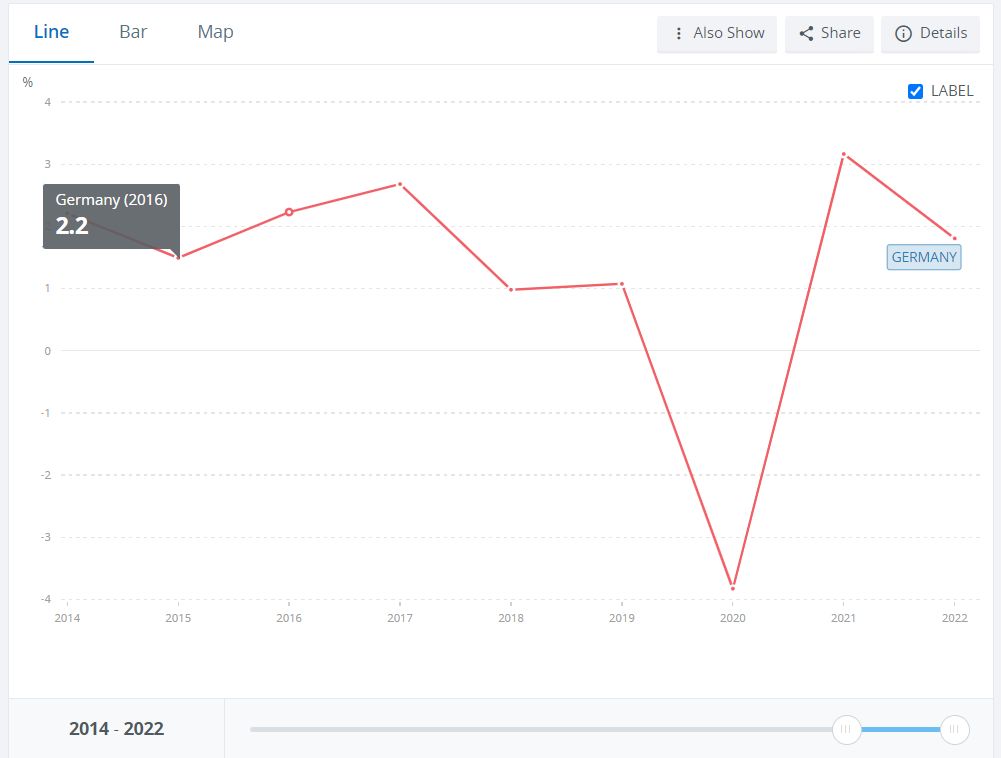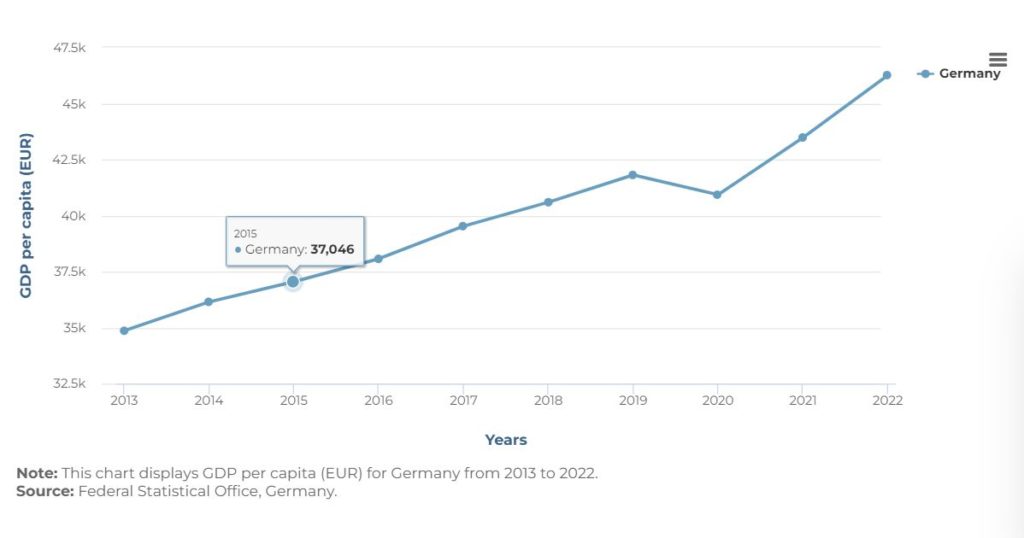Original article (in Croatian) was published on 09/1/2024; Author: Ana Benačić
What “sells” on the most apolitical network of all? We take you through the campaign trail of parliamentary parties and candidates on TikTok, the platform favored by the younger electorate.
If we ignore the 4.2 billion voters outside Croatia at the polling stations in the year with the most elections in history, as many as three contests for power await our almost four million voters in the 2024 super election: parliamentary, European and local elections. n light of this, some parties have shifted their focus to capturing the votes of the new millennium generation on TikTok, Croatia’s fourth most popular social network according to SimilarWeb.
They’re targeting voters right there, on the most apolitical network:

The self-proclaimed “entertainment platform where millions of people come every day to watch, share and create fun and joyful (short video) content” strives to provide users with a “positive and welcoming” feeling, preferring short, fun, fitness, beauty and music content that will steal your attention in the first two seconds.
TikTok, the self-proclaimed ‘entertainment platform where millions of people come daily to watch, share, and create fun and joyful (short video) content,’ aims to offer users a ‘positive and welcoming’ experience. It emphasizes short, engaging content in fun, fitness, beauty, and music that captures your attention within the first two seconds.
Simultaneously, the platform bans the collection of funds for political campaigns and even their advertising. At first glance, and even upon further scrutiny—whether it’s the second or seventeenth look—it appears to be a wholly unnatural setting for tackling deep and complex social issues, which ideally should be addressed in political discourse as part of the democratic process.
That’s why we examined what resonates in this arena of political ideas, packaged in small, appealing formats. Regrettably, the most popular content is metaphorically poisonous.
Millionaire Kolakusic
The most viral videos of political actors on their official channels are about migrants, and mostly about people who came to Croatia from the Near and Far East.
The absolute winner here is Mislav Kolakusic, a member of the European Parliament, who has accumulated 1.2 million views on his most popular video. It is only slightly more popular than his second-placed video on the channel. There, the head of the European Commission, Ursula von der Leyen, is accused of useless populism, due to the Commission’s management of the Covid crisis, as well as its stance towards the wars in Ukraine and Palestine.
In the video entitled “The EU leadership sponsors the smuggling of millions of people to Europe by abusing social funds”, Kolakusic says: “You called them refugees, now you call them migrants. It is high time to call them by their real name – perpetrators of criminal acts”. He addresses the President of the Commission as a liar (“von der Liar”) and accuses her and the former Chancellor of Germany, Angela Merkel, of destroying Germany with migrant policy, that is, of abusing European funds. There is no evidence for that. Although it is not an ideal measure of well-being, it is the Covid crisis that has led to a sharp decline in GDP in Germany. Immediately after the increased influx of refugees until the pandemic, the German economy recorded moderate growth or a weaker decline in the gross domestic product.

The same can be seen in GDP per capita.

Although he is a former judge, Kolakusic blanketly condemns undocumented migrants for criminal history and/or criminal ambitions, excluding any possibility that there may be people protected by international law among them. Since they initially violate the national laws of the host countries by illegally crossing the border, these people can be deported at any time, or detained in detention, in case of refusal of asylum or any other basis for stay. At the same time, Kolakusic ignores the already substantial knowledge about the impact of immigrants on crime rates in the host countries, as well as the fact that this differs from country to country.
Researchers from the Faculty of Business and Economics studied the example of Germany. Comparing the crime rates before and after the immigrant wave in 2015, they conclude that the impact is zero on average, which coincides with numerous references to similar research in the world.
The analysis of data for 21 European countries, which was made in 2021 by three American professors, showed similar results. They used data from the United Nations Statistics Division (UNSD), the International Labor Organization (ILO) and Eurostat. They estimated the percentage of immigrants, stateless immigrants and refugees who committed three different types of violent crimes – murder, rape and sexual assault. “Overall, the results showed a null relationship between immigration and crime, suggesting that immigration is unrelated to all three types of crime assessed”.
In the spring, the French media reported that the overrepresentation of foreigners in the statistics is the result of bias in the entire legal chain (Le Monde).
“The number of crimes committed in the country does not increase as a result of the migration wave”, claims the author of the study, economist Arnaud Philippe. They also cite one exception: a small proportion of immigrants are “slightly more likely to commit a theft when they do not have access to the labor market”.
However, there are also countries where immigrants are overrepresented in crime statistics. An example is Sweden. This country of ten million inhabitants has received 1.2 million foreign citizens in the last 12 years, of which 700,000 received Swedish citizenship. Since 2017, the Swedish government has been publishing fact-checks related to crime and immigration, which we wrote about. The most recent update of answers to burning questions was made at the end of November 2023:
“According to the latest study, people born abroad are 2.5 times more likely to be registered as a criminal suspect than people born in Sweden to two parents born in the country. Compared to this last group, therefore, the relative risk of being suspected of crime for persons born abroad is 2.5. For those born in Sweden to two non-native parents, the relative risk is 3.2, meaning that people in this group are just over three times more likely to be registered as suspected offenders than those born in Sweden from two parents who were born in the country. However, the magnitude of this excess risk decreases when differences in age, sex, and living conditions are taken into account, from 2.5 to 1.8 and 3.2 to 1.7, respectively.
Brå 2019 literature review, covering Nordic studies on crime and foreign origin from 2005–2019, finds similar results – people with a foreign origin are somewhat overrepresented, and the overrepresentation varies by country of origin and type of crime. According to Brå, the factors that lead to segregation – for example, low levels of education and lack of employment or other occupations – also contribute to higher levels of crime among people of foreign origin. Factors such as war trauma, mental illness and levels of crime, conflict and economic development in the country of origin may also be contributing factors to explain some of the differences.
Pernar blames asylum seekers for… homelessness in Zagreb!
Not only Kolakusic’s success but also the success of former MP Ivan Pernar can be interpreted as the wave of prejudices about migrants. Although he is a former politician, he has not been idle this year. He gave up the fight against evictions, but that is why he testified against Croatian couples who tried to adopt children in Zambia, he campaigned conspicuously for the Homeland Movement and even more conspicuously against Tomislav Tomasevic (Mozemo!) [1, 2, 3] in Zagreb. He visited schools, glorified racism and distributed crazy health advice [1]. The possibility that he will appear on the ballot this year cannot be ruled out, so we cannot ignore his activities on TikTok either, since he is one of the rare “millionaires”.
Although he was always adept at using social networks, Pernar developed specialist experience in blaming refugees and migrants for all the ills of modern society [1, 2, 3]. Thus, in his most viral video on TikTok, it can be discovered that asylum seekers are to blame – for homelessness in Zagreb.
Even though he is not among the “millionaires”, Most’s most viral TikTok video also deals with migration. It is a clip from the conference of MP Nino Raspudic, after the initiative of Most that Croatia should send the army to the border because of migrants.
Let’s also note that Igor Peternel from the Homeland Movement joined the scandalization of foreign workers who celebrated the New Year in the main square in Zagreb. The move launched his first video towards a six-figure audience.
Homeland Movement and Kristo Vidovic against price increase
Nevertheless, the Homeland Movement, as well as Karolina Vidović Kristo, attracted the largest audience by embarrassing the ruling HDZ in the Parliament due to the accelerated impoverishment of broad sections of Croatian society in the past years. The government’s price control measures and the repeated appeals [1, 2] of the head of the Croatian National Bank, Boris Vujcic, to Croats to “buy where it’s cheaper” do not contribute to the general subjective feeling that prices are reasonable. After the peak of inflation in Europe on the wings of rising energy prices due to the war in Ukraine, Croatia introduced the euro and just kept flying, ending in 2023 with bronze, i.e. with the third highest inflation in the EU. You can read more about how nominally rising Croatian salaries were eaten up by inflation in Faktograf’s earlier text.

Davor Dretar’s speech about the rise in food prices and agricultural production, accompanied by sad music and the title “It’s like we gave Viagra to prices, while our wages suffer from erectile dysfunction!” reached a quarter of a million TikTokers.
Kristo, on the other hand, lashed out at HDZ MP Tomislav Okrosa on the same topic, and got twice as many views. She titled the video “While Croats are fleeing Croatia, HDZ is laughing”.
“Mr. Okrosa, I don’t know in which world you live. Was this discussion of yours some kind of grotesque, some kind of satire? What was this? Do you see where you live? Do you see the prices? Do you see how Croatian citizens have to struggle with everyday life? One Nivea costs twice as much as in any country of the European Union. How is that possible?… What are you laughing at? While Croatian citizens are running away from your thievery, you are laughing? It’s not funny, just like your discussion isn’t funny, it’s terrible! Have a little empathy at least towards those you destroy”, she told him, among other things and exceeded half a million views. In the second most popular video, with over 320,000 views, she calls out the Homeland Movement for corruption, namely Mario Radic, co-owner of Pevex, and deputy president of the Homeland Movement.
Kristo exceeded 120,000 views by calling on Plenkovic to step down, saying that for him former Prime Minister Ivo Sanader is a little baby, after which she was deprived of the right to speak. Her speech about the corruption of the HDZ is also popular, for which she earned two reprimands at once and was removed from the Parliament with a ban on speaking that day. She accused HDZ in the gas affair in which PPD got rich at the expense of Hrvatska elektroprivreda.
“Plenkovic literally became the spokesperson for retail chains, talking about boned drumsticks so that, of course, he would not talk about his corruption with Vujnovec and Fran Barbaric. Barbaric threatens him that he will play cards with him in prison for 10 years, and the Prime Minister does not have the strength to dismiss him because he himself is involved in crime in HEP. Mr. Plenkovic cannot hold the position of prime minister because he was blackmailed”, she said.
Mozemo! weak, despite an early and solid start
Mozemo! was marketed somewhat weaker on TikTok, although it started a campaign on that network in 2021. Tomislav Tomasevic’s viral video about HRK 5,300 for a meter of wooden fence in a children’s park, which is not even closed, reached almost 250,000 views, and his opponent from the mayoral campaign, Miroslav Skoro, was caught not knowing that there is an incinerator in Zagreb waste, reached 111 thousand. In the next almost three years, they managed to surpass Tomasevic’s video from the park on only two occasions, with clips from the presentation in the Parliament of Ivana Kekin, who is also a star of the Nova ljevica channel.
In one, he criticizes members of parliament because none of them appeared at the committee’s discussion on violence against women, and that was in the days when the police in Osijek tried to cover up the fact that their colleague had killed a young female student with an official pistol. The most viral, however, is the video in which Kekin criticizes a visibly annoyed Plenkovic for his hypocrisy regarding the war in Gaza. After Croatia voted against the ceasefire at the UN General Assembly in October, Croatia sent aid of 250 thousand euros from the budget. That, Kekin calculated and angered the prime minister, is barely half of the sum “embezzled” on the project at the Faculty of Geodesy (570,000 euros). The short video reached almost 360 thousand people.
Sovereigns and pig slaughterers
The sovereignists, for example, fared a little less well with the video of Mario Pavlicek, who explains to his parliamentary colleagues what traditional pig slaughtering looks like in Slavonia.
In the Parliament, the sovereignists have repeatedly spoken out against the euthanasia of pigs, although there are no vaccines or other particularly effective ways to combat this terrible and highly contagious pig disease. And so the next three most viral videos of Sovereignist are again about swine fever [1, 2, 3]. The plague that hit Slavonia shook that already impoverished region and started a series of peasant demonstrations.
SDP – bad
The SDP, once the most powerful opposition party, is weak on TikTok. The only video that exceeded 50,000 views is a compilation of “fun moments” in Parliament. It is currently at 78 thousand. Next in terms of popularity is the video of Sanja Radolovic talking about the decision of the Supreme Court which upheld the verdict against Ivo Sanader for bribery during the sale of INA to the Hungarian Mol. The decision was made two years before this video was uploaded.
One of the reasons why SDP is doing so badly may be hidden in the fact that SDP does not follow the rule of grabbing attention in the first two seconds of the video. An example can be Mirela Ahmetovic’s attempt to talk about SDP’s proposal to remove petitioners from hospitals.
In parliamentary procedure
we sent
proposal for changes (00.02)
of the Law
on public assembly
which we would use
to disable
public gathering
at a distance
smaller than
200 meters
from health institutions (00.08)
It takes 8 seconds to get to the point of the proposal, while in the first two, she pronounces the most boring terms that exist in the Croatian dictionary.
In terms of numbers, the SDP thus remains comparable to Katarina Peovic, the only representative of the Workers’ Front in the Parliament. Her most viral video is about support for Palestine, which is close to 70,000 views. Second-ranked is a video from a protest in support of Wolt workers, with more than 40,000.
“Non-partisan” political channels
Beyond the official channels of candidates and parties, there are also those who do not explicitly reveal their party affiliation, but clearly have political preferences and reach a large audience. Politika za Gen Z, for example, fully adheres to the rules of TikTok propaganda but does not declare who is behind the channel. It is clear that it favors the youngest liberal-left MPs, among whom it does not include Peović (at least for now).

There, Kekin, and especially Dalija Oreskovic and SDP’s Radolovic, are portrayed as superheroes. Each video is “bolded” with sound, music and visual effects. The video Croatian politics in gag city is accompanied by Niki Minaj’s music, and the comments enthusiastically believe that the lexicon of Generation Z is shown in the video: “eaten”, “ATE” and “4+4”. This means everything – good work, success, “tear”, that is, “break”. In the so-called In Gag City, a technologically advanced dreamy pink utopia ruled by singer Niki Minaj, these MPs would be ministers.
Dalija Oreskovic is the Minister of Justice and the star of the channel, i.e. Queen Dalija with three videos with more than 100,000 views [1, 2, 3]. One of the hits is the video of Oreskovic calling HDZ a gang. Dalija Oreškovic’s official channel also stands solidly in the independent category, especially when it comes to criticism of the HDZ. The most viewed video at the time of writing is Plenkovic’s “Gute reise, bis bald, aufwiedersehen!” which reached 160 thousand viewers.
On the wings of multi-party criticism of the ruling party, the antikradeze channel comes and is quite successful. Here, the video of sovereignist Marijan Pavlicek with more than 330,000 views, which talks about – migrants from Turkey, stands out. The following is a video with the statements of poor fellow citizens, who cry in front of television cameras due to poverty and emigration. It ends with accusing Plenkovic of being Judas, along with the lyrics of the song “Curse of King Zvonimir” by Marko Perkovic Thompson: “The sons of Judas sold our dreams…” Followed by Karolina Vidovic Kristo with name-calling because of HEP and PPD, and Katarina Peovic listing the most sought-after occupations in the Republic of Croatia – salesman, cleaner and waiter.
Among the “non-partisan” ones, the “Fenomentastic” channel is also interesting, which only features Mostovci as superheroes. The most popular videos are those with Marin Miletic. Almost 800,000 people attended his appearance in the Parliament, where hetalkeds about the illogicality of the sanctions against Russia, which, he claims, caused the energy crisis and the rise in prices. The second most watched is the famous video of Sanader’s response to a journalist asking her to find the answer to what he lives on (instead of asking him, which the colleague rightly did). Miletic follows, criticizing the purchase of excess doses of vaccines and then his proposal to deprive drunk drivers of their property, and in the case of a repeated offense, their driver’s license for life.
Who doesn’t have TikTok yet?
HDZ itself, as well as its rival SDSS, do not have active TikTok accounts.Interestingly,t Zoran Milanovic is also inactive on TikTok, although he is the protagonist of many viral videos.
An example is his justification of the thesis that Kosovo was annexed from Serbia (1.3 million), which was published by N1 television. The same presentation attracted 700,000 clicks on other sources [1, 2]. More than 800,000 views go to his mocking of the Minister of Foreign Affairs, Goran Grlic Radman, who “tried to start” a German official, which was published by 24sata. The laugh with which Milanović “answered” a journalist’s question about Serbian President Aleksandar Vucic’s claim that Prime Minister Ana Brnabic rejected his proposal to reinstate the death penalty, “infected” more than two million TikTokers.
With some exceptions like Kolakusic, Most and Pernar, who have used social networks most skillfully so far, political parties generally still do not use TikTok (well enough) for political propaganda.



